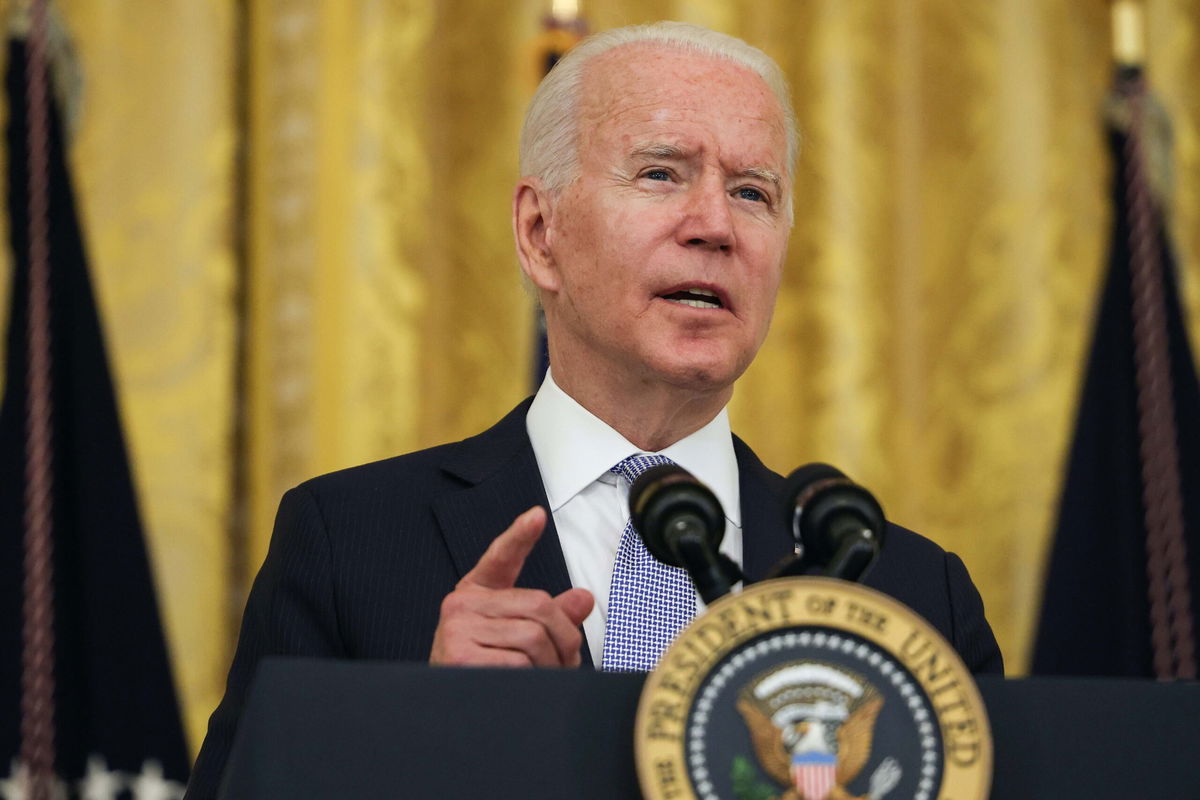Biden administration announces new sanctions on Cuba while eyeing further actions

President Joe Biden will discuss applying new sanctions on the Cuban regime when he meets with Cuban-American leaders at the White House on Friday. Biden is shown here in the East Room of the White House on July 29
By Kate Sullivan and Maegan Vazquez, CNN
The Biden administration outlined a number of efforts related to its Cuba policy on Friday — including new sanctions and assistance to Cuban dissidents — as President Joe Biden met with members of the Cuban-American community and key members of Congress at the White House.
“Earlier this month Cubans took to the street in a show of the will of the people of Cuba. The regime responded with violence and repression, mass detentions, sham trials and people disappearing who have spoken out,” Biden said during the meeting, also detailing US efforts related to remittances, staffing at the US embassy in Cuba and internet access on the island. “Cuban-Americans are hurting … because their loved ones are suffering. And it’s, quite frankly, intolerable.”
The Treasury Department’s Office of Foreign Assets Control announced the sanctions earlier Friday, designated by the Global Magnitsky Human Rights Accountability Act. The sanctions target Cuba’s National Revolutionary Police — the country’s primary law enforcement body; Oscar Callejas Valcarce, the director of the police; and Eddy Sierra Arias, the police’s deputy director.
The sanctions, the Treasury Department said, “were made in connection with actions to suppress peaceful, pro-democratic protests.”
Asked later if the US would issue additional sanctions against Cuba, Biden told reporters, “There will be more, unless there’s some drastic change in Cuba, which I don’t anticipate.”
Biden said the administration is working to assist political dissidents, address the US halt to remittances, increase US embassy staffing in Cuba and restore connectivity on the island.
“We’re expanding our assistance of political prisoners and dissidents,” Biden said. “I’ve directed the State Department and the Treasury Department to provide me within one month recommendations of how to maximize the flow of remittances to Cuban people without the Cuban military taking their cut. And we’re working to increase US staffing in our embassy while prioritizing the safety of our personnel.”
Cuba’s government controls the financial sector and all communications on the island, and Biden has said he believes that under the current circumstances the remittances would end up in the hands of the regime.
Circumventing the government to send money or improve and expand internet access is a challenge other US administrations have tried and failed to overcome, but the issue has taken on increased urgency in the wake of the historic and widespread protests.
The President indicated that the US is “increasing direct support for the Cuban people by pursuing every option available to provide internet access to help…the Cuban people bypass the censorship that’s being mandatorily imposed.” Biden had previously said his administration was working with civil society organizations and the private sector “to provide internet access to the Cuban people that circumvents the regime’s censorship efforts.”
The administration has been in touch with private providers about LTE connectivity options, a senior administration official told reporters on Friday ahead of the President’s meeting.
The official also said that “given the protests of July 11th, it is important for US diplomats to engage directly with the Cuban people. And if we can do that in a way that ensures the safety of US personnel, that it’s something that we will undertake.”
Friday’s meeting took place weeks after Cuba saw the largest protests in decades, when thousands took to the streets to protest lack of food and medicine as the country undergoes a grave economic crisis aggravated by the Covid-19 pandemic and US sanctions. Meanwhile, Democrats are also under pressure to take a tougher line against the Cuban regime amid inroads former President Donald Trump made in 2020 among Cuban-Americans in Florida.
The list of attendees slated to meet with the President included Felice Gorordo, the CEO of eMerge Americas and the co-founder of Roots of Hope; Yotuel Romero, the lead singer of Cuban hip hop group Orishas and the author of Patria y Vida, the song that has become an anthem for the protesters; Ana Sofia Pelaez, the founder of the Miami Freedom Project and former Miami mayor Manny Diaz.
Senate Foreign Relations Chairman Robert Menendez of New Jersey and House Foreign Relations Chairman Gregory Meeks also attended.
Separately, the Biden administration last week sanctioned a key Cuban official and a government special forces unit known as the Boinas Negras for human rights abuses in the wake of the historic protests.
Last week’s sanctions came after Cuban-American groups and some members of Congress criticized the administration for not adopting a tough enough approach to the Cuban regime.
Biden said during his presidential campaign he would try to reverse Trump-era policies on Cuba that he said have “inflicted harm on Cubans and their families.” But Biden’s review of these policies remains underway, and people familiar with the discussions tell CNN the review is unlikely to result in a return to the Obama-era policy of normalized relations with Havana.
The Cuban government has shown no signs in recent years of easing its political and economic repression of the Cuban people, which has severely narrowed the Biden administration’s options for returning to normalized ties.
Democrats in South Florida have been privately and publicly urging their party leaders to embrace the protests against Cuba’s communist regime. These Democrats believe standing with the Cuban people could help the party regain ground with the state’s diverse Hispanic voters, nearly half of whom voted for Trump in 2020 in a nearly 10-point swing from four years before.
This story has been updated with further developments.
The-CNN-Wire
™ & © 2021 Cable News Network, Inc., a WarnerMedia Company. All rights reserved.
